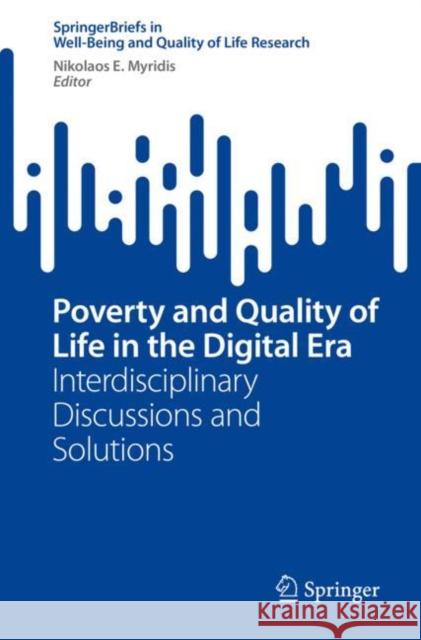Poverty and Quality of Life in the Digital Era: Interdisciplinary Discussions and Solutions » książka
topmenu
Poverty and Quality of Life in the Digital Era: Interdisciplinary Discussions and Solutions
ISBN-13: 9783031047107 / Angielski / Miękka / 2022
Poverty and Quality of Life in the Digital Era: Interdisciplinary Discussions and Solutions
ISBN-13: 9783031047107 / Angielski / Miękka / 2022
cena 201,72 zł
(netto: 192,11 VAT: 5%)
Najniższa cena z 30 dni: 192,74 zł
(netto: 192,11 VAT: 5%)
Najniższa cena z 30 dni: 192,74 zł
Termin realizacji zamówienia:
ok. 22 dni roboczych
Bez gwarancji dostawy przed świętami
ok. 22 dni roboczych
Bez gwarancji dostawy przed świętami
Darmowa dostawa!
This book proposes new solutions to the problem of poverty, and begins with providing analyses. It bases most of the analyses and solutions in the context of the digital era. The book also follows, in addition to a scientific distribution, a spatial-geographical one: analyses of countries of the European Union as well as South Africa, while it referring to two main variables, television and art, as agents of poverty alleviation. The book places particular focus on how poverty is understood in the framework of Industry 4.0. It introduces a new expanded Multidimensional Poverty Index with more than 20 dimensions; moreover, it provides a mathematically based solution for the disposal of perishable food. Finally, it does not disregard the crucial aspect of the issue of poverty: that of education planning. This book is of interest to specialists in poverty research, from students to professionals and from professors to activists, without excluding engineers.











